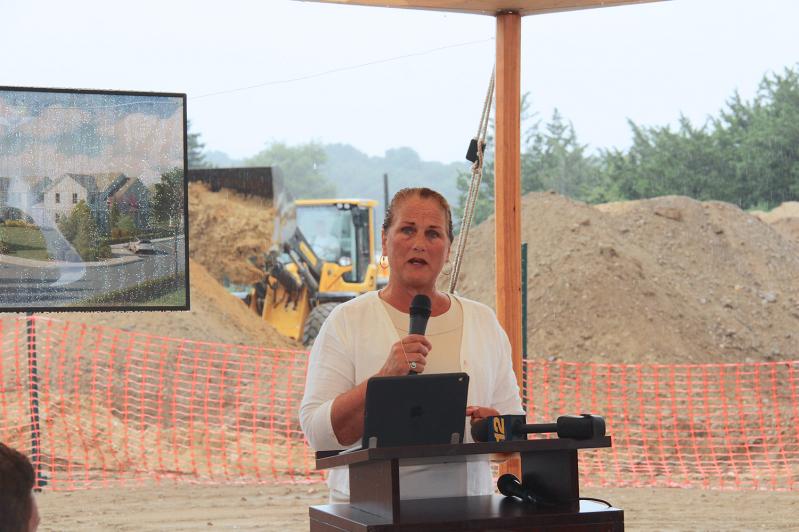The owner of an agricultural reserve at 625 Butter Lane in Bridgehampton, who had been seeking permission from the Southampton Town Zoning Board of Appeals to construct agricultural housing on the property, filed legal notice in State Supreme Court last Thursday of his intent to sue the town for inappropriately interfering in the Z.B.A.’s decision-making process.
Adam Shapiro, the manager of the limited liability company that owns the nine-acre parcel, was seeking setback variances from the Z.B.A. to construct two buildings, totaling over 2,000 square feet, to house the workers on a tree farm. A site plan for the property also included a greenhouse, a storage structure, a parking area, an outdoor kitchen, and a freestanding bathroom.
According to documents submitted with Mr. Shapiro’s application, the agricultural reserve was created in 1996 when the land, which had been owned by the Hampton Day School, was subdivided. At the time, the town’s planning board designated a 200-foot-wide building area for accessory structures on the western side of the property.
The proposal required variances because the structures would fall within the allowed setbacks from adjoining properties. The application drew fierce opposition from neighbors, who said the housing would be too close to their homes and would have a negative effect on the character of the neighborhood.
Mr. Shapiro has been represented at Z.B.A. hearings by John Bennett, an attorney.
In April, James Burke, an attorney for the town, informed Mr. Bennett that building housing on the property would constitute a “material breach” of the Hampton Day School easement.
The easement “expressly prohibits any ‘temporary or permanent residential or residential accessory structures,’ ”Mr. Burke wrote. “And it is the fiduciary duty of the town . . . to properly enforce the terms contained within each easement.”
At the time, Mr. Bennett called Mr. Burke’s letter “an irrelevancy,” and said he would provide the zoning board with examples of judicial decisions that allowed agricultural housing to be built on properties similar to Mr. Shapiro’s. The hearing on the application ended on March 21, but the zoning board had not yet issued a determination.
Last Thursday, Mr. Bennett told the Z.B.A. that Mr. Shapiro was withdrawing his application because the town had intervened in the proceedings, and he sent the board a copy of the notice of claim filed against the town. According to the notice, Mr. Shapiro will seek a judgment that agricultural housing is in fact permitted on the property. He will also sue for damages for “slander of title;” that is, the publishing of an untrue and disparaging statement about another person’s property.
The claim arose, according to the filing, on May 16 when Mr. Bennett received a letter signed by Southampton Town Supervisor Jay Schneiderman and the town board members John Bouvier, Julie Lofstad, and Tommy John Schiavoni (but not Christine Scalera), in which they reiterated the town attorney’s assertion that the easement prohibited the construction of housing, including for agricultural workers, on the property.
“The board members have been cowed by the neighbors,” said Mr. Bennett on Monday. “Everybody who owns a piece of real property should be afraid of overreach like this.”
Mr. Burke could not be reached for comment, but Patrick Fife, a lawyer representing a neighbor who opposes the housing, said the claim was without merit. “The town board properly asserted its rights under the easement agreement, and it’s unfortunate that more time and taxpayer money may need to be spent in litigation to defend the town’s position,” said Mr. Fife. “Mr. Bennett’s client bought a property knowing full well it was subject to a recorded private easement that prohibited the construction of residential housing on the property, and he’s now trying to escape that requirement by threatening the town with a baseless lawsuit.”

